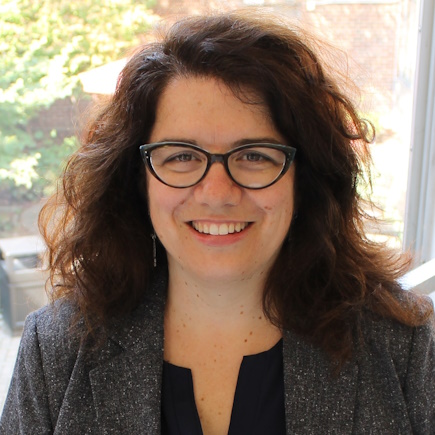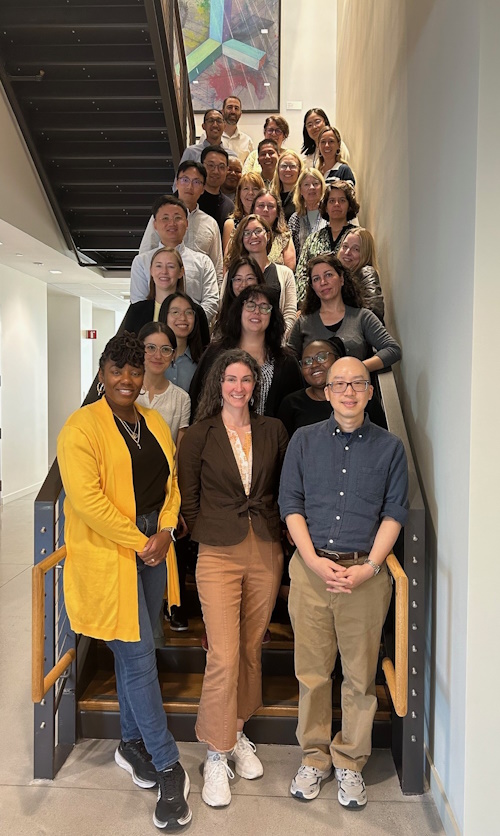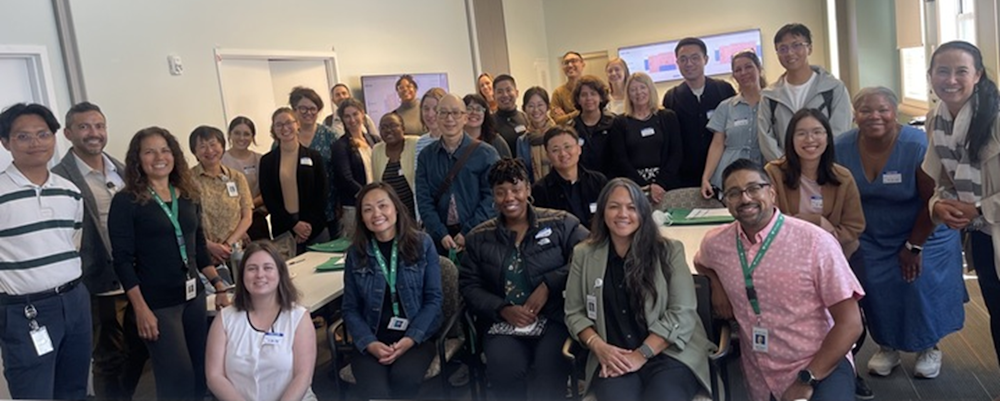Social Work and Anthropology doctoral candidate undertakes immersive training to advance care for Persons Living with Dementia
Laura Sutherland, a candidate in Wayne State University’s Ph.D. in Social Work and Anthropology (SWAN) program, was accepted into the inaugural Advancing Workforce Analysis and Research for Dementia (AWARD) Summer Training Institute at the University of California, San Francisco.

The goal of this intensive week-long institute, which occurred in July 2024, was to train early-stage researchers, including doctoral candidates, in rigorous research concepts related to the health workforce and care for Persons Living with Dementia (PLwDs). Participants received immersive training on topics such as labor economics, workforce definitions, research data sources, and clinical aspects of Alzheimer’s Disease and related dementia.
Sutherland, whose research interests include older adults aging in place and the transformative potential of the arts to improve quality of life and enhance community, is one of only 24 researchers to be selected for the program.
Social Work Acting Dean Debra Patterson stated, "The AWARD Summer Training Institute is an invaluable opportunity to equip the next generation of researchers with the tools necessary to address the complex challenges faced by individuals living with dementia and their caregivers. We are proud that Laura is among this select group of early-stage scholars, and we are excited to see her research contributions in this critical area."

Sutherland's dissertation project is focused on how practices of art shape personhood and social relations among persons with dementia. She received a 2023 Research Stimulus Program grant from the Wayne State Provost’s Steering Committee on Social and Behavioral Determinants of Health and the Blue Cross Blue Shield of Michigan Foundation to help fund the project titled “How art activities influence social relations of persons with dementia: An ethnographic exploration.”
Before joining the SWAN program, Sutherland worked as a community-based clinical social worker. She credits her doctoral training for enhancing her ability to critically assess the impact of unquestioned assumptions and values on care provision in community and healthcare settings.
“The SWAN program has allowed me to integrate my clinical experience and develop research and teaching expertise across multiple disciplines, including social work, anthropology, and public health, supporting me in my goal of impacting policy and practice in both academic and non-academic contexts as I move into the next phase of my career,” Sutherland said.
Sutherland deepened her understanding of labor economics and state and federal regulations affecting care and payment during the AWARD Institute. She looks forward to collaborating with other early-stage researchers focused on PLwDs and enhancing her research through insights gained from caregivers and staff in dementia care contexts.
Wayne State and its researchers are committed to addressing health disparities and expanding access to healthcare and resources, both locally and globally. President Kimberly Andrews Espy's 2024 Prosperity Agenda underscores the university's dedication to translating research, such as Sutherland’s, into actionable initiatives that positively impact lives.
"My dissertation examines how our region's geography impacts dementia care in both community and residential settings, influencing disparities in care and personhood,” Sutherland said. “Understanding personhood involves considering historical, institutional, and structural factors affecting access to resources and care. By investigating how social inequalities persist in care settings for persons living with dementia (PLwDs), I aim to inform improvements that support PLwDs to live in the community and assist caregivers effectively."

“Laura's dissertation work will add to our knowledge on the varied ways to support individuals with cognitive impairment. Social behavioral interventions that promote expression and creativity contribute to person-centered trajectories of care,” stated Tam Perry, Social Work Professor and Sutherland’s Social Work dissertation advisor.
Sutherland's participation in the AWARD Summer Training Institute underscores the university’s commitment to reducing healthcare inequity, equipping her to explore how art and regional factors influence dementia care. Her interdisciplinary approach promises to shape future policies and practices, benefiting both caregivers and persons living with dementia.
“As healthcare technology rapidly evolves, inequities continue to plague our society. It is my hope that Laura’s research in this area will help our caregivers in their work and improve the quality of life for people living with dementia,” said Graduate School Dean Amanda Bryant-Friedrich.
Writer: Sarah Freeman and Editor: Betsy Vanderstelt